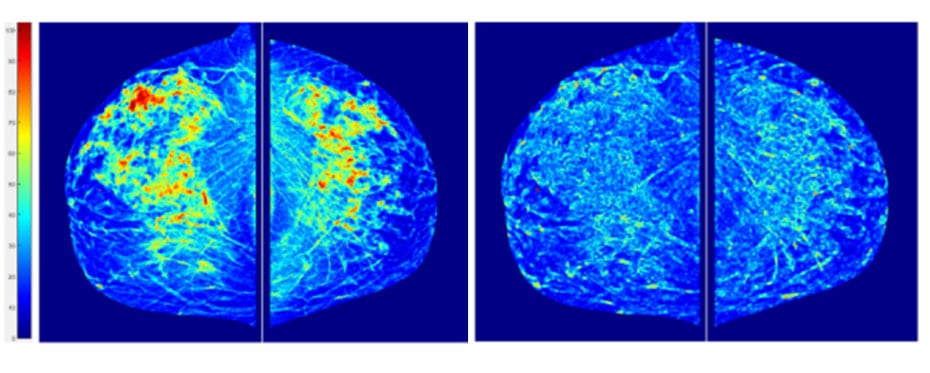Breast Cancer Awareness Month 2023 – #WearItPink
Since the Breast Cancer Now charity started the #WearItPink fundraising day, over £39 million has been raised in the name of breast cancer research. As one of the most common cancers in the UK, over 50,000 women and 370 men in the UK have been diagnosed with the disease so far this year. The sad truth is that around a quarter of these cases could have been prevented by simple lifestyle changes, and awareness of early signs and symptoms of cancer.
Although the work done by the Breast Cancer Now campaign is impressive, these figures show that there is still a need for people to wear it pink on 20 October if their goal of making sure that every person diagnosed with breast cancer survives is to be achieved.
In light of their amazing work, we’ve chosen a selection of articles about some of the research being done to understand and overcome this disease.

Assessing performances of computer-aided diagnosis of breast cancer
In under two decades, the techniques used to image, classify, and diagnose breast cancer have significantly improved with the help of rapidly advancing computer-based digital image processing and machine learning technologies. Since the early days of developing computer-aided diagnosis technology in the 1990s, Professor Bin Zheng at the University of Pittsburgh and then the University of Oklahoma has dedicated his research to assess its capabilities. His work has allowed for advances ranging from confirmations of the success of some of the first detections of cancer from digitised mammograms to the use of MRI in assessing the responses of breast tumours to chemotherapy.
The relationship between cancer subtype and treatment: New development using breast cancer subtypes to predict clinical outcomes
Dr Yang’s research at the National Cancer Institute, USA, focuses on the discovery and validation of predictive and prognostic biomarkers for targeted cancer therapies and chemotherapy in breast cancer, lung cancer and other cancer types. The recent work in her group has focused on better understanding breast cancer subtypes and associated clinical outcomes, following treatment or without treatment – working towards advances in precision medicine and a cure for breast cancer.

Breath hold techniques during volumetric modulated arc therapy in breast cancer patients
The research of Dr Vishruta Dumane, Icahn School of Medicine at Mount Sinai, New York, focuses on developing approaches to radiotherapy that will minimise risk to neighbouring organs and tissues, while maximising the impact of treatment to the tumour. Her recent work adds further support for the use of deep inspiration breath holds during radiotherapy (VMAT) – reducing exposure of critical organs, such as the heart and lungs, to off target doses of radiation.
Establishing the first set of guidelines for breast cancer management in Bosnia and Herzegovina
Specialised centres that monitor breast cancer patients can help improve disease outcomes by recording patient information and by helping to implement centralised guidelines for disease management. In Bosnia and Herzegovina there is no accurate data on breast cancer patients, nor any centralised guidelines. Dr Lejla Hadžikadić-Gušić, a breast surgical oncologist, of the Department of Surgical Oncology at the Atrium Health Levine Cancer Institute, USA, led a team of specialists that took on the major task of creating the first multidisciplinary guidelines for the management of breast cancer in Bosnia and Herzegovina.